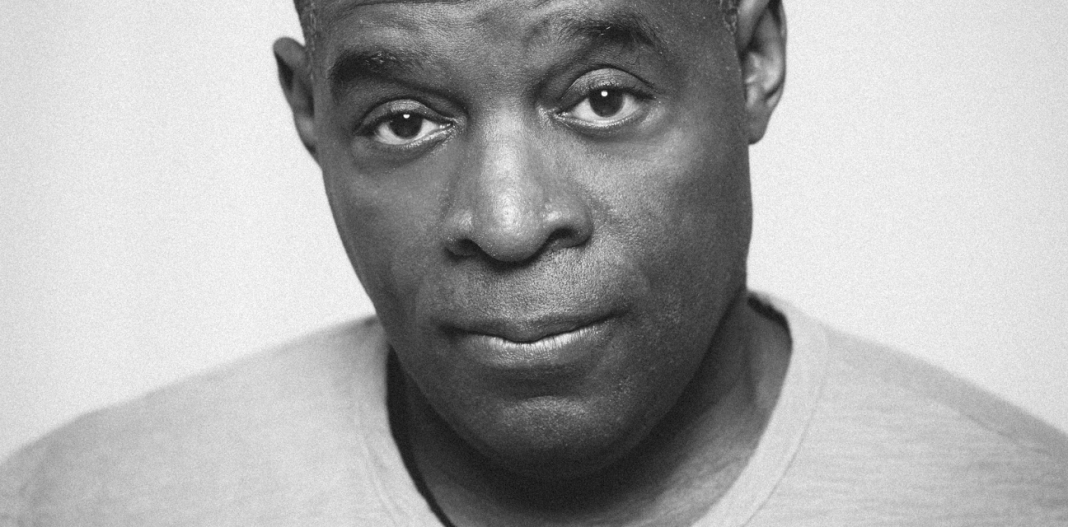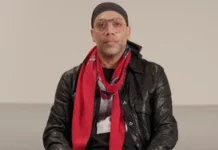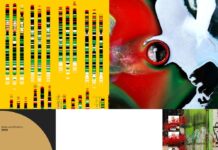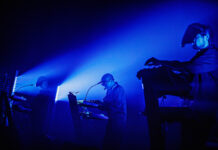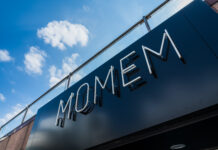How did you produce your first proper track?
I started producing on drum machines, but I got tired from making just beats. I thought: I got to make more than just beats. But how can I do something different? Doing something was getting a sequencer and a couple of different keyboards in order to add bass lines. That was the first way I started trying to produce music. At the same time, Derrick had his own keyboard and maybe a sequencer and Juan had his stuff for sure. But you didn’t see Juan when he made music, he wouldn’t let you hang out. My brother had a lot of technology as well. Eventually I figured out what tools to get and what to do watching Derrick and other cats.
Your music is more positive, more powerful and euphoric than most productions hailing from Detroit. Why do you think your attitude was so different?
I guess that was my God-given talent. My inspirations were different than Derrick’s and Juan’s. My first record was a vocal record. Nobody in Detroit was making vocal records. I had a different way. Because I lived in New York, I was more disco-influenced then them.
How did they react to your music?
I had my own vibe. I lived in Detroit, I had friends there, but I made my own way. I used my inspirations and I created my own pathway. I did not try to follow Juan, I did not try to follow Derrick. People did not know if I am from New York or Detroit. I can go quite extreme.
Then Neil Rushton from London showed up in Detroit. He licensed the music of the whole scene for the seminal compilation Techno! The New Dance Sound of Detroit. Soon everybody European interested in dance music knew who you were.
It was a good timing that we were making all this great music. Derrick met Neil and Neil came to Detroit and listened to some of our music. He had this great idea about doing a compilation and it worked out. At the same time, Derrick is releasing music, I am releasing music, and we have a great underground success. And the compilation gave us more exposure. Because Chicago got so much attention back then, Detroit came at the right time. It was similar, but different. Faster, more minimal. More soundtrack-like – at least in respect to Derrick and Juan. It was relevant. It was an important time. Furthermore, I had “Big Fun” on it, which opened even more doors because we had a big commercial success. It was called techno, but it’s just me making my tracks.
Video: Inner City – Big Fun
Did you feel conncected to the Detroit scene or did you do something on your own?
I was influenced by New York and by Detroit. That was the path I was gonna take. I made this track called “The Sound”, real minimal, real basic. It was huge in New York, massive. New York was a little slower, a little deeper and very groovy. It was pretty big in Chicago, too. On the flipside, I had a track called “You Can’t Tell Us How To Play Our Music”. It was huge in Detroit and huge in Chicago. It was all underground, and I was able to conquer all those markets. I had them all. I guess I was fortunate. There was a void ready to be filled.
What kind of experience was it to go to the UK and to play your music there? Did the crowds get it?
The people who came out got it, and you had a handful of Black kids who came to every party. In Detroit, we had the Music Institute to get people into the music. That’s how Richie Hawtin discovered techno. He was just this young kid from Canada. You had people like that coming over and saying: Now they want to start making music.
What was the Music Institute like?
400-500 people would fit in there. It opened up at midnight and it stayed open until 5 or 6 in the morning. No alcohol, just juice and fruits. It was uncommon for Detroit, it was something you would expect in Chicago or New York. It was our Music Box or our Paradise Garage.
What was the crowd like?
It was mostly Blacks, but it started to mix a little more as time went on and the music became more popular. We had one night that was more gay, like the Paradise Garage. I actually opened the club, I played the whole night, for six hours. Derrick was supposed to play but he went to meet Neil Rushton. I played the first few times, then Inner City was taking off and I was making music, touring and went to pop shows.
Inner City came out of nothing. You were 24 when you did “Big Fun” and “Good Life”. Your first track was released a year before.
I think it was just my ears. Part of being a great producer is not necessarily being a great musician. I was able to come up with a little riff, and I couldn’t even read music in the beginning. I got enough of the basics which I thought were important. Also part of producing was creating a sound. I was very good at making a unique sound that sounded different for Inner City and choosing the right vocalist at the right time. Paris Grey’s voice was a sound by itself. I had this magical delight about how she sung and how she wrote. It was a great combination. You had hooks musically and you had hooks vocally. It is just a winning combination and it elevated the scene to another level. We had “Move Your Body” and “Love Can’t Turn Around” before, but this was different.
How did you create such a specific sound? Or is it a secret?
Some of it was sample based. I manipulated the samples with other instruments, with oscillators and filters. You re-sample the sound, after you did all that. Now you get almost like a chord-like sound. And also I was thinking: Would this song be played in the Paradise Garage? I would think about that a lot, especially with a vocal record. How can I make the balance where a record is vocal but Larry could still play it on the big soundsystem? I heard all these other great vocal tracks there, so I wanted to make a track that could be played there as well. That never happened because the Paradise Garage closed around the time “Good Life” and “Big Fun” came out. But “The Sound” got played at Paradise Garage I think.
